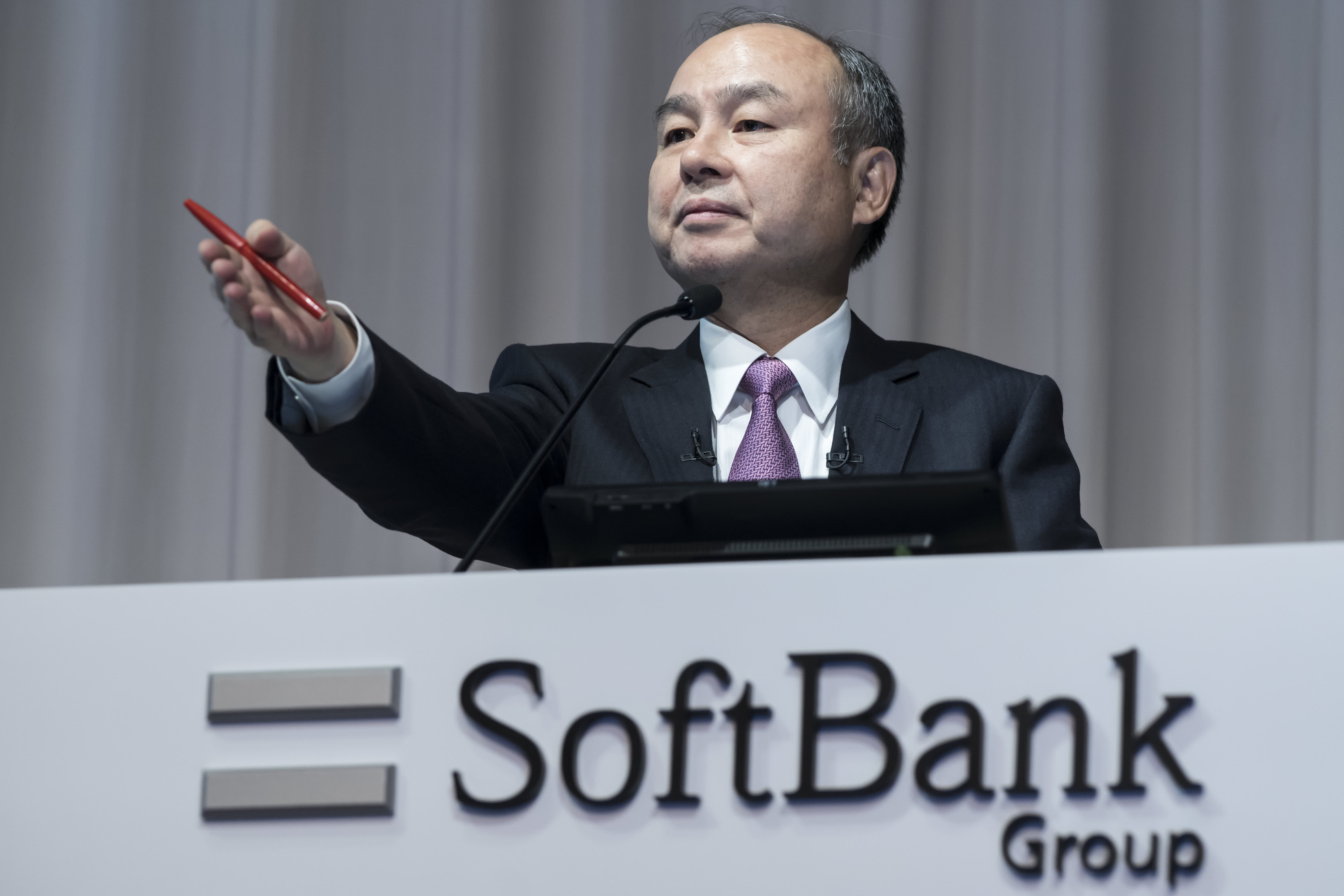
Japan’s SoftBank was reportedly the “Nasdaq whale,” that bought billions of dollars in individual stock options in big tech companies over the past month, driving up volumes and contributing to a trading frenzy.
Softbank declined comment on a Financial Times story that quoted unnamed sources who said it was buying equity derivatives on a massive scale. Rumors had circulated in the market that there were large players behind the frenzied activity in the options market for big tech and internet stocks, and SoftBank was one named mentioned in connection with extreme volumes in some out-of-the-money calls.
SoftBank, through its $ 100 billion Vision Fund, has made big investments on privately held technology start ups. The big investments in the options market is new territory for the investment firm.
Investors have been watching extraordinary activity in out-of-the-money calls which some analysts had seen as a contrarian warning about a pending Nasdaq sell off. Some of the names with high amounts of activity, include Apple, Tesla, Zoom, and Nvidia.
According to the Wall Street Journal, SoftBank had made regulatory filings showing it bought nearly $ 4 billion in shares of Amazon, Microsoft, and Netflix, plus a stake in Tesla. The paper quoted a source saying that SoftBank spent roughly $ 4 billion buying call options tied to its stock holdings, but also in other names. It then could profit from the run up in stocks and subsequently unload its position to other parties.
SoftBank was trading in names that are among the key drivers of the stock market. Apple, Amazon , Microsoft, Facebook and Google equal about a quarter of the S&P 500, and they have been drivers of a big chunk of its gains. One options trader explained that those names can be proxies for the market, and can be hedged against the S&P 500 and vice versa.
The options market activity was credited by analysts for adding froth to the stock market itself. Some of that is now reversing. Nasdaq fell sharply Thursday, declining 5%, and was down another 2.5% Friday. The Nasdaq, from its March low to intraday high this week, was up 83%.
“It’s just a trip to the casino,” said Peter Boockvar, chief investment officer at Bleakley Advisory Group. “If they’re supposed to be an investment company taking a long-term horizon, then trying to juice your short-term return through options, you’ve turned into a hedge fund.”
Boockvar said the question now is whether SoftBank unloaded its positions. “We’ll see if they’re reversing it. A lot of the call buying was an upward lift to the market. The sellers of those calls, then had to buy stocks and hedge and it becomes a self-fulfilling prophecy on the upside,” he said.
The Financial Times said the trading volumes in single stocks had surged beyond the average daily volumes of calls on the broader stock market indices.
Traders had been monitoring the unusual activity, which may help explain why the stock market had been climbing at the same time the VIX was rising. The VIX is the CBOE’s Volatility Index, which is calculated based on trading in puts and calls on the S&P 500. The VIX serves as the market’s so-called fear gauge and typically moves higher when stocks are falling, not rising.
Tech investor Roger McNamee said the SoftBank report was disturbing. “If it’s true that SoftBank is doing that, it would be more signs that the fundamental picture here is decoupled from stock prices,” he said on CNBC.






